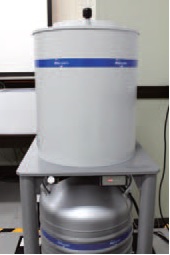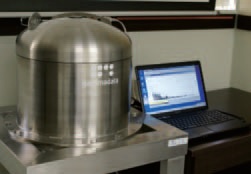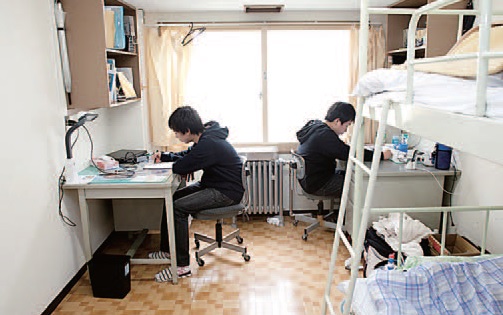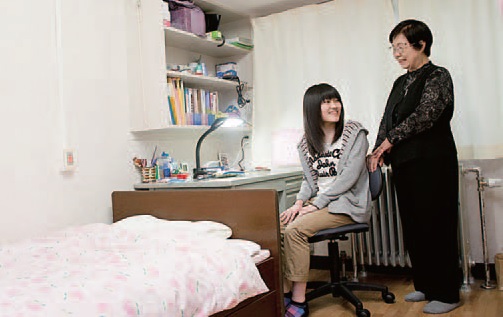Center for Cooperative Research and Technology Development
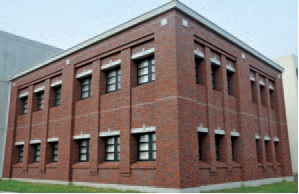
The Center for Cooperative Research and Technology Development is a shared research facility which is open to the region and to within the campus. The center partnership between industry, academia and government. The center fulfills 3 major roles. The first is an outward role of supporting technological development and conducting joint research to respond to the needs of regional corporations. The second is an inward role of supporting joint research projects which are conducted by faculty and staff and which exceed the boundaries between departments.
The third role is to conduct high-level technological education with a mainly focus on students in the Advanced Course.
The center contains an Engineering Consultation Room which implements partnerships with regional industry by offering consultation regarding joint research, contract research and development of technology. Additionally, the center also contains machine rooms and research rooms which are installed with facilities and equipment for experiments and research.
●Engineering Consultaion Room
Has become the point of contact for consultations on joint research, contract research and technological development for cooperation with regional industry.
●Major Equipment
We have put into place an analysis and inspection system to support the safety of food in Hokkaido. In particular, in response to the accident at
the Fukushima Daiichi Nuclear Power Plant, we purchased a Nal radioactivity measuring device for food and have been responding to requests
for analysis from all over Hokkaido. Moreover, our rapid food bacteria inspection devices can shorten the inspections for bacteria in food that
used to take 24 hours to a time of less than half that.
We possess the fluorescence spectrophotometers required in the analysis of spark plasma sintering (SPS) and electroluminescence (EL) for the
trial manufacture of metal materials. In addition, we have introduced a concrete tester for structural hammer tests in light of situations where
accidents occur due to deterioration in concrete structures. Imaging of the strength and surface condition of concrete structures has become
possible with this device.
●Radioactivity Measuring Device for Food
| We have two radioactivity measuring devices-a germanium semiconductor device and a sodium iodide scintillation device. These devices make it possible to measure the radioactivity of solids and liquids. Accordingly, it is possible to measure not only foods (e.g. meats, vegetables and milk) but also soil. Analysis of radioactivity in a method prescribed by the government is completed in 20 to 120 minutes. These radioactivity measuring devices have been installed to ensure the safety of food in Hokkaido and we are promoting the application of these widely throughout all of Hokkaido. We submit the results of these measurements as reports. The analysis fee per sample is 12,000 yen for the germanium semiconductor device and 6,000 yen for the sodium iodide scintillation device. |
|
|
Educational Center for Library and Computers
The Educational Center for Library and Computers is composed of the Laboratory for Computerized Information, library, computer rooms and the internal information network. The Laboratory for Computerized Information is a joint facility for all departments and can be used for information processing education, CAD (Computer Assisted Design) education, graduation research and academic research. The laboratory contains more than 200 computers and the laboratory is often used for study and education. Furthermore, information outlets and wireless LAN have been installed in all rooms and shared spaces within our college, making it possible to connect computers to the internal information network from anywhere on our campus. The internal information network is also connected to the internet, allowing users to use e-mail, view homepages and conduct searches for written material.
Laboratory for Computerized Information
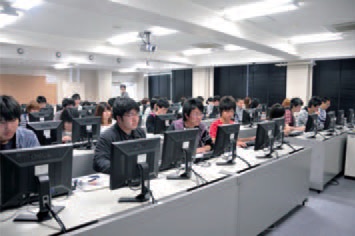 |
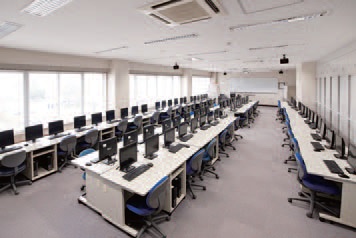 |
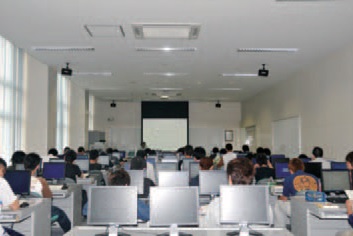 |
| Literacy Training Room | Program Training Room | CAD Training Room |
Library
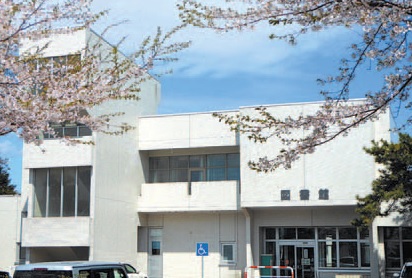
The library is a facility which provides support for the study, education and research of students, faculty and staff. The library is a place to acquire knowledge and cultural refinement, and contains written works on art, beloved novels and periodicals which discuss the present. The library is open until 8:00 PM on days for which classes are held, and open until 4:00 PM on Saturdays. In addition to searches from within the library, our college’s collection of written materials can be searches from laboratories and homes by using the “Collection Search” function on the library homepage. Our college also participates in a consortium headed by the Nagaoka University of Technology. This allows users to access database electronic journals such as JDreamⅢ and Science Direct in addition to conventional printed materials. The library focuses on student support by providing a “Self-Study Corner” equipped with 15 individual desks.
This area provides an even quieter area for study within the library.
The library is also open to local citizens for browsing and borrowing of materials.
●Equipment
The library is equipped with 25 computers which offer the same environment as the CAD Training Room and the Program Training Room. The computers can be used to conduct information gathering, topic study and self-study via the internet. Access points for wireless LAN are also provided so that users can bring and use their own laptop computers. The library also has 16 CD players available to users. The players can be used to play material such as English listening comprehension CDs. Also available are 4 DVD/video players and a total of approximately 700 DVDs/videos and other materials available for viewing.
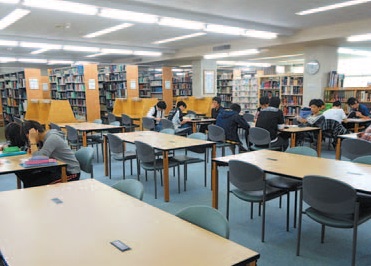 |
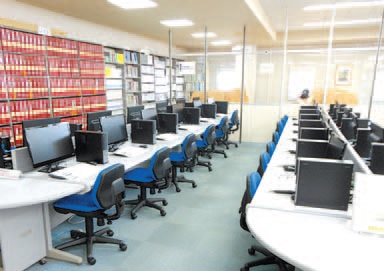 |
| in-Library | Library Training Room |
General Student Support Center
●Background to establishment
This college integrated/restructured the three organizations of the “Career Education Center,” “Student Support Office” and “Student Counseling Office” that had previously support students as independent organizations and launched the new “General Student Support Center” in April 2014. The launch of this center is intended to deal with the diversifying nature of the students who have enrolled in this college due to changes in the conditions surrounding society and schools, as well as to deal with the need for support that is both meticulous and speedy according to the needs of students. The General Student Support Center will work with the aim of enhancing comprehensive support for students on career guidance, studies and mental health by promoting student counseling that includes career education support, learning support and special support education.
Student Counseling Office
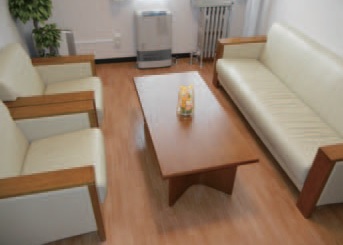
The Student Counseling Office performs the business of the planning, drafting and implementing of projects relating to student counseling, including special support education. In addition to the Counseling Office staff, Student Support Coordinator (Special Support Education Supervisor) and part-time counselors (clinical psychologist) made up of teaching staff from this college, the Student Counseling Office works with two external psychiatrists to perform business relating to student counseling.
●Business of the Student Counseling office
- Planning and drafting of projects relating to student counseling
- Counseling and advice relating to the individual problems of students
- Counselling and advice on the mental health of students
- Surveys and analysis necessary in the work of student counseling
- Collection and storage of the documents necessary in the business of the preceding items
- Other necessary business relating to student counseling
Career Education Support Office
The Career Education Support Office has been conducting the following activities in order to provide various types of information on job hunting, higher level learning and off-campus training, as well as to promote organized and systematic career education from the lower grades of this college since the establishment of its predecessor ? the Career Education Center ? in FY2006.
●Business of the Career Education Support Office
- Career guidance when entering college (Explanations given on study methods toward career realization and preparedness etc.)
- Provision of career counseling (Professional career advisors offer consultations with all students that have concerns about their career path)
- Implementation of a career design course (Aims to improve future planning, self-realization and communication abilities)
- Further education and job hunting support (Individual interview advice and correction of entry sheets for those that are job hunting or
looking toward further education)
- Provision of information on job hunting, higher level learning and off-campus training (It is possible to search for job hunting, higher level
learning and off-campus training information)
- The holding of Career Design Support Weeks (These are held twice a year in August and December
and are a consultation week for students and their parents/guardians)
- Implementation of a career design course for female students (Initiatives are made for the creation of a gender-equal society)
Learning Support Office
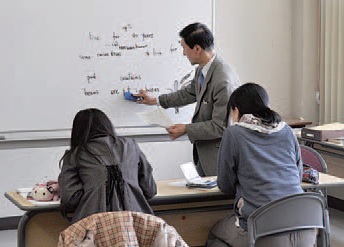
In recent years, there has been an increase in people who have not acquired the habit of daily learning due to the diversification in the living environment of students. Since the impact of this on promotion and job hunting is great, the establishment of an“attitude to continue learning”has become an urgent challenge in the educational guidance of this college. Against this background, a decision was made to establish the Learning Support Office in January 2010 and to then integrate and reorganize this into the General Student Support Center in April 2014.
●Business of the Learning Support Office
- Planning and drafting of projects relating to learning support
- Construction and implementation of an individual learning support system for students
- Development of learning support materials
- Surveys and analysis necessary in the work of learning support
- Collection and storage of the documents necessary in the business of the preceding items
- Other necessary business relating to learning support and learning guidance
Techno-Training Center
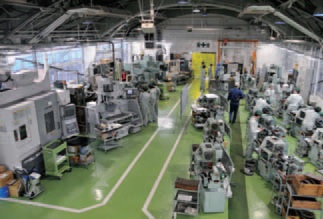
The Techno-Training Center is a shared facility of our college and conducts the following support activities.
- Support for manufacturing education: Support for processing training in the Department of Production Systems Engineering. Support for engineering exercise to encourage creativity in each department. Implementation of safety classes for teaching staff responsible for robocon and internal/external classes related to the use of manufacturing equipment.
- Support for research activities: Manufacturing of experiment machinery used in the research activities of teaching staff and in the graduation research of students.
- Development support for high-level machinig and measurement technology: Form shaping using the Machining Center or laser beam machine. High level measurement using the 3D digitizer and 3D coordinate measuring machine.
- Support for joint research and regional lifelong education: Through visit to our college, open college, college festival and extension courses, offer engineering education and lifelong education for elementary and junior high school students and citizens in the Hakodate area.
In addition to fundamental machine tools such as lathes, the center also possesses a large number of computer-controlled machine tools. The main machine tools of the center are listed below.
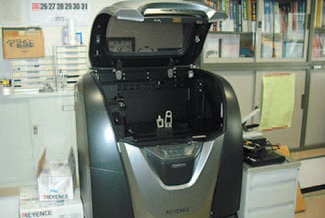 |
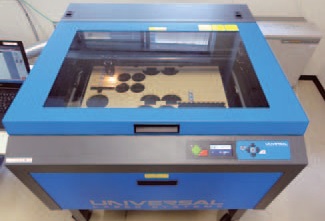 |
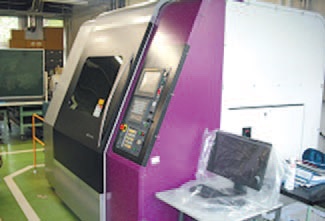 |
| 3D Printer | Laser Beam Machine | Fiber Laser Beam Machine |
Dormitory
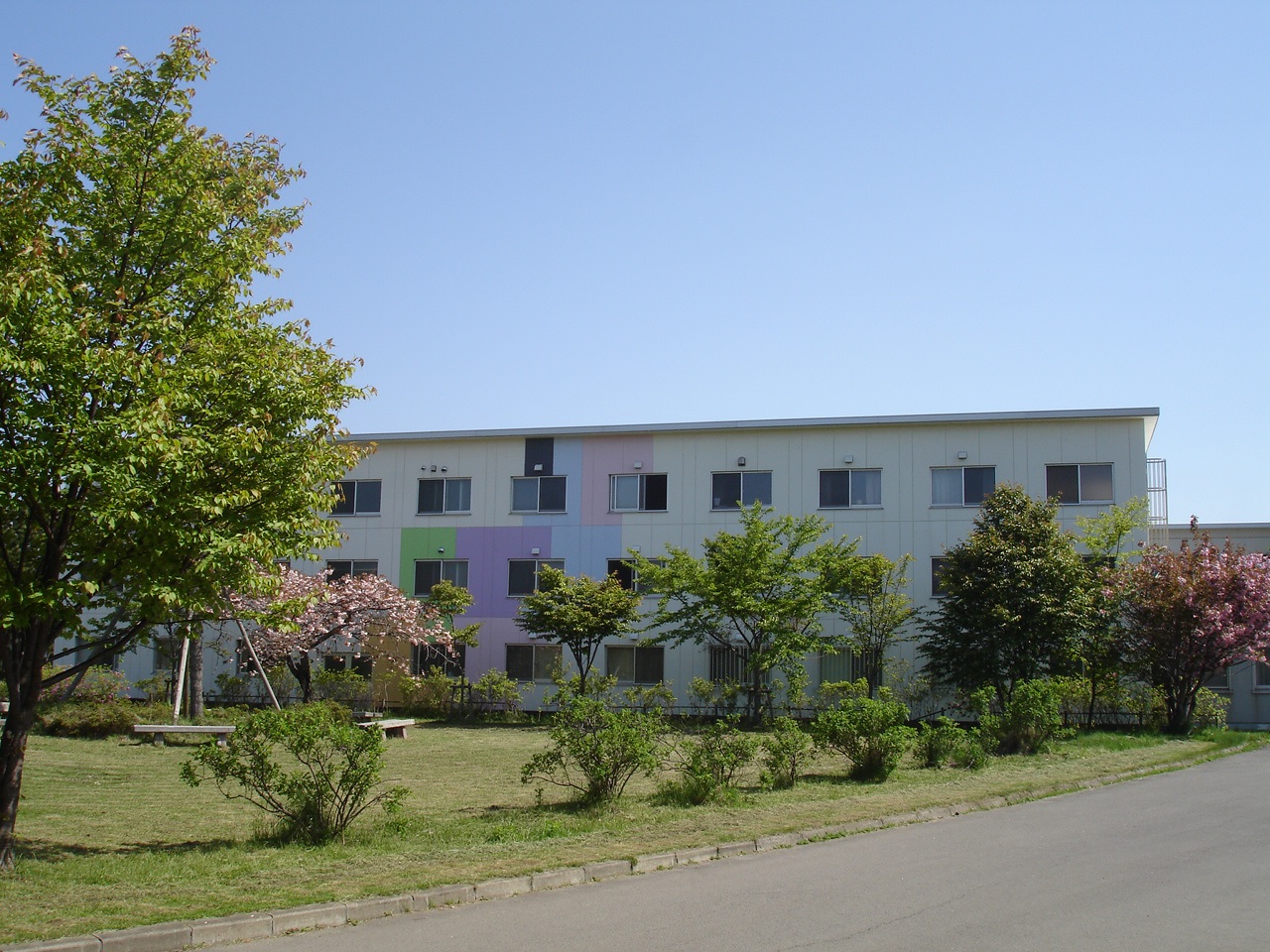
We have a dormitory (“Shuncho Dormitory”) of three buildings with three rebar floors for students enrolling from far away on the premises of the school. Boarders live meaningful lives in the dormitories through activities such as voluntary events with boarders meetings under the guidance of the Dormitory Affairs Committee. A women’s dormitory was opened in 2002. At present, a total of 212 men and women, including foreign students, are living in the dormitories.
All the 41 rooms in the women’s dormitory are private, but the men’s dormitory is organized into 79 private rooms, 49 double rooms and 3 triple rooms.
An entranceway separated by gender was installed along with facility refurbishments in 2013 and the men’s dormitory and women’s dormitory were made completely independent, separate facilities are provided for men and women with bathrooms, laundry rooms, drying rooms, food rooms, study rooms and common rooms.
Furthermore, the entrance to the women’s dormitory has a fingerprint matching automatic lock and security cameras have also been installed.
